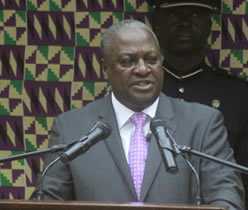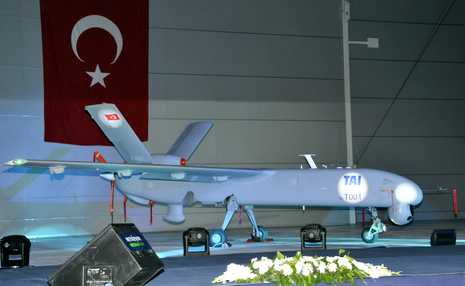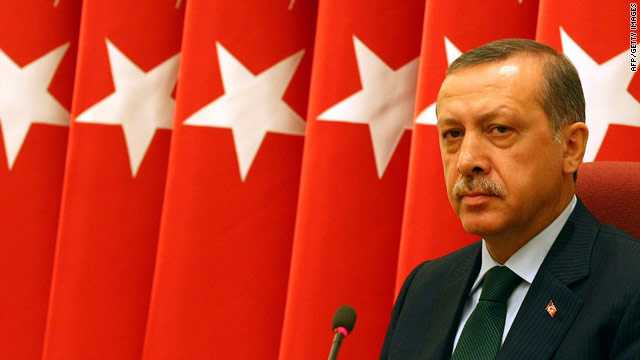Turkey, like Iraq, Jordan and Lebanon, has accepted tens of thousands of Syrian refugees since the uprising against President Bashar al-Assad began two years ago. The Turks threatened for the first time to deport a group of refugees after a riot at one of Turkey’s 17 refugee camps on Wednesday, a threat that alarmed the United Nations refugee agency, which said such a move would violate international law.
Melissa Fleming, a spokeswoman for the United Nations High Commissioner for Refugees in Geneva, said in an interview that a forced return would breach legal protections that prohibit host countries from forcing refugees out.
Turkey changed its stance on Thursday, saying that the refugees would not be deported but had agreed to leave voluntarily after having been told that they would face prosecution if they stayed.
The Foreign Ministry, in a statement, said the group of refugees “wanted to use the right to voluntary return, and left for Syria.”
A local government official in Turkey confirmed this Thursday afternoon, saying, “A deportation is out of question, and we cannot deport them when we do not have the right to do so according to the terms of temporary protected status.”
The 130 Syrians had been identified as residents of the Suleiman Shah camp, in the township of Akcakale in Sanliurfa Province, who had been involved in a riot on Wednesday that damaged the camp’s facilities, including a medical center.
The circumstances behind the riot are in dispute, but it may have started after a fire in a tent that killed a 7-year-old girl and injured her two sisters.
Television images showed dozens of people hurling stones inside and outside the camp, cars with broken windows and damaged laptops inside a press vehicle.
Camp security officers, unable to contain the violence, called in the military police, and images on television showed armored military vehicles moving into the camp. The military police tear-gassed and hosed down the protesters.
The Turkish government said that the protest broke out when a crowd gathered outside the camp demanding entry. With 35,000 refugees, the camp is full, another local government official said, denying that the protest was linked to the fire, which he attributed to faulty electrical wiring.
“It was clearly an act of provocation, which started at the gate, outside the camp, far from where the fire broke out,” the official said.
Unlike Syria’s other neighbors, Israel — which remains in a technical state of war with Syria — has not accepted any Syrian refugees. But it has become increasingly concerned as fighting between Syrian insurgents and loyalists has crept close to the decade-old cease-fire line in the Golan Heights. An Israeli military official said Thursday that it had bolstered medical teams on the frontier because of wounded Syrians seeking aid.
The latest such episode occurred on Wednesday, when several Syrians arrived at the demarcation fence. Israeli Army medical crews attended to most of them on location and returned them to Syria, but two who had suffered severe head wounds were taken to a hospital in Nahariya, in northern Israel.
One of them died soon after, and the military transferred his body back to Syria early Thursday with help from United Nations peacekeepers in the area, according to Haggai Einav, a spokesman for the Western Galilee Hospital in Nahariya. The second remained in serious but stable condition on Thursday after having three operations, Mr. Einav added.
At the United Nations, Vitaly I. Churkin, the Russian ambassador, enlarged on remarks Foreign Minister Sergey V. Lavrov had made in Moscow, saying that the Arab League was playing a “destructive” role in international attempts to peacefully resolve the Syrian conflict because it had granted Syria’s vacant seat to the main opposition coalition, which seeks to topple Mr. Assad by force.
Mr. Lavrov told reporters in Moscow that the Arab League’s action had raised serious questions about the role of Lakhdar Brahimi, the special Syria envoy who represents both the Arab League and United Nations. Mr. Churkin said Mr. Brahimi should distance himself from the Arab League.
A spokesman for Mr. Brahimi said he had no immediate comment. Mr. Brahimi was appointed the joint envoy last August.
“The Arab League has basically taken itself out of the joint effort,” Mr. Churkin said at a news conference, criticizing opposition supporters as concentrating on a military solution while merely “paying lip service” to a political one.
“Now, instead of dialogue, we have a group of people whose legitimacy has been established from outside the country,” Mr. Churkin said. “Their legitimacy does not have any ground in Syria, no elections.”
Mr. Churkin dismissed the opposition group, the National Coalition of Syrian Revolutionary and Opposition Forces, as “an international traveling thing” and described its work as “chaotic,” with a constant parade of new leaders.
He said Russia still maintained hope for a political settlement, although critics maintain that it has done little to actually push Mr. Assad in that direction.
Mr. Churkin also said the Syrian opposition’s aspiration to take Syria’s seat at the United Nations would probably fail.
“We’ll oppose it very strongly,” he said. “The U.N. is an intergovernmental organization. You simply do not seat opposition groups who have not gone through the process of legitimization.”
Sebnem Arsu reported from Istanbul, and Rick Gladstone from New York. Nick Cumming-Bruce contributed reporting from Geneva, Isabel Kershner from Jerusalem, and Neil MacFarquhar from the United Nations.





